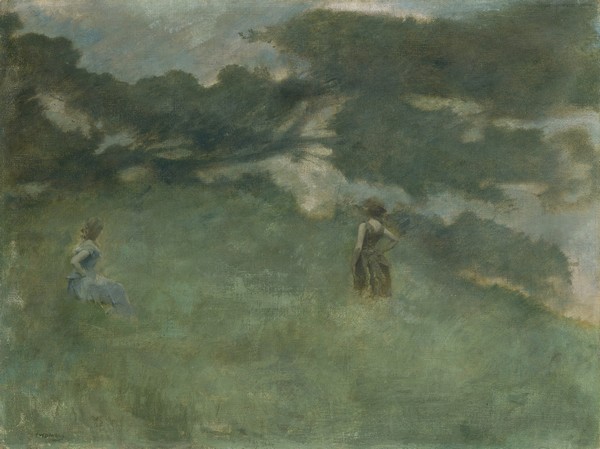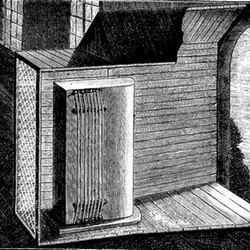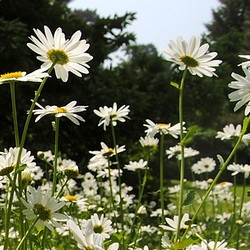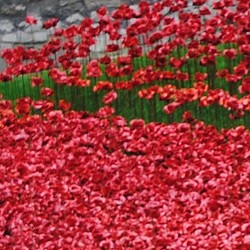“This will be our reply to violence: to make music more intensely, more beautifully, more devotedly than ever before.”
Leonard Bernstein

Walt Whitman is one of the essential poets in American literature. This year marks the bicentenary of his birth, so we have a perfect excuse to listen to a third song with one of his poems, after listening to O you who I often and silently come by Ned Rorem and To what you said by Leonard Bernstein.
Walt Whitman’s poetic work centres in one title, Leaves of grass; not because he didn't write any other collection but because the twelve poems in its first edition in 1855 grew up eventually to more than four hundred; In each edition, the poet revised, added, removed, reordered... I imagine the scholars tracking down his poems through so many editions. This week's poem was included in Leaves of Grass in 1867, in the fourth edition, but before it was part of the collection that Whitman wrote during the Civil War, Drum-Taps, one of the best-known and musicalized; To be precise, it was included in the second part, Sequel to Drum-Taps. The war ended in April 1865 as the first part was being printed, but Abraham Lincoln's murder thay very month inspired a second part, which was published in autumn.
When lilacs last in the dooryard bloom'd is one of the two elegies of this collection (the other is O Captain! My Captain!, so well-known thanks to a movie); the poet remembered having noticed the lilacs in his mother's garden the day that Lincoln was killed, because it was too early for them to bloom. The first person poem is a long meditation on death and mourning, divided into sixteen parts or cantos in its final version. The canto 14 introduces a second poetic voice, a hermit thrush. This bird lives in the forests of Alaska, southern Canada and northern United States; it's a shy creature, that avoids dwelling places. In the painting that illustrates this article, Thomas Wilmer Dewing shows its shyness, we can hardly see the bird; The two female figures are also looking for it, they may heard its song, that John Borroughs, a naturalist friend of Whitman, described as "the finest sound in nature." The poet was interested in the solitary habits of the hermit and used it as the alter ego of the poem’s narrator; the last verse before the carol song says: "And the voice of my spirit tallied the song of the bird."
I mention the hermit because we're listening to it in this week’s song, composed by someone who turns 90 next October 24: George Crumb. I'm glad to welcome him on Liederabend, with Apparition, a cycle written in 1979 from excerpts of When lilacs last in the dooryard bloom'd.
It's a cycle for voice and amplified piano; with this unusual accompaniment, we appreciate suggestive and new sounds that lead us into the forest, as the three vocalises that we hear after the first, fourth and fifth songs do. The second song text belongs to the first canto of Whitman's poem; all the rest belong to the carol of the bird. All in all, Crumb puts into music twenty verses from the elegy.
Apparition is a fascinating cycle, and the fascination begins with the first song, The night in silence under many a star, which we're listening this week. The text is the sixth stanza (out of seven) that the hermit sings, and it seems that the bird (that's to say, the poet) begins to accept the loss. Under the stars, everything is peaceful, even the ocean waves are whispering. The soul turns towards death and the body cuddles up to it, just as if he were sleeping with his mother. Crumb repeats some parts of the four verses, often with melismas, and adds a vocalise at the end of the first three ones; In the fourth verse, the voice repeats its last words, "close to thee". The vocal line creates a sense of mistery, as if we were part of a primitive farewell ritual, and the sound of the piano, especially when the pianist plays the strings, helps to enhance this atmosphere; the effect is hypnotic.
Apparition was commissioned by soprano Jan DeGaetani, who premiered it along with Gilbert Kalish on January 1981; they recorded the work some years later and this is the version I'm sharing. I hope you like The night in silence under many a star as much as I do and that you listen to the whole cycle. If you do so, at the end, you’ll listen to this song again; The cycle has a circular structure (similar to Unvergänglichkeit, by Korngold), so the first song and the sixth share words and music, with just some small differences.
The night, in silence, under many a star;
The ocean shore, and the husky whispering wave, whose voice I know;
And the soul turning to thee, O vast and well-veil'd Death,
And the body gratefully nestling close to thee.




 T...
T...











Comments powered by CComment